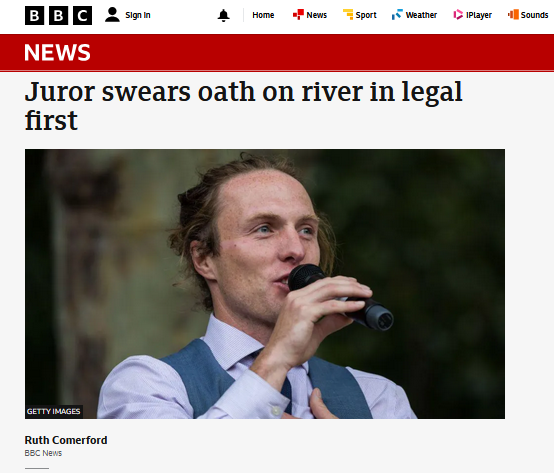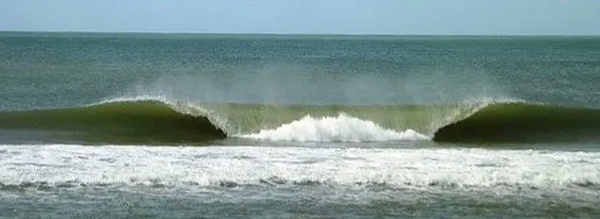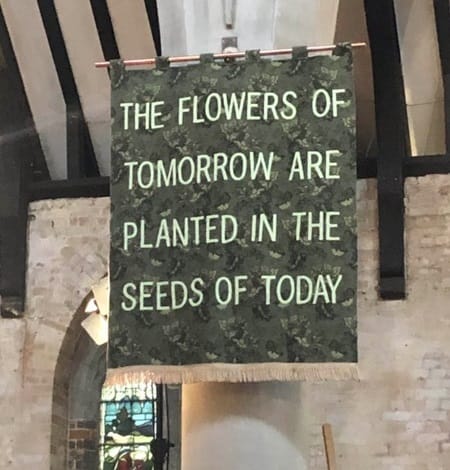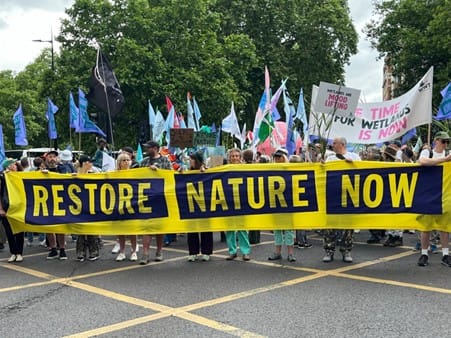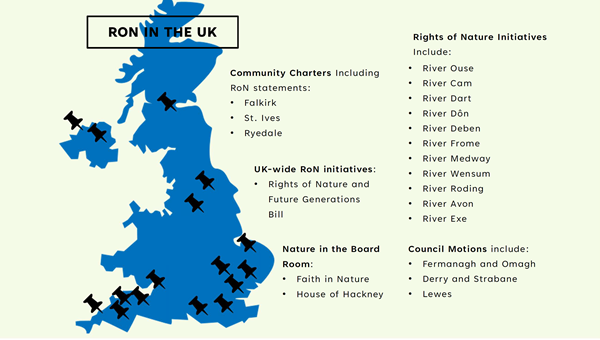Rights of Nature in Ireland – Towards a Living Island of Rights-Bearing Communities: Submission to the Irish Citizens’ Assembly on Biodiversity Loss
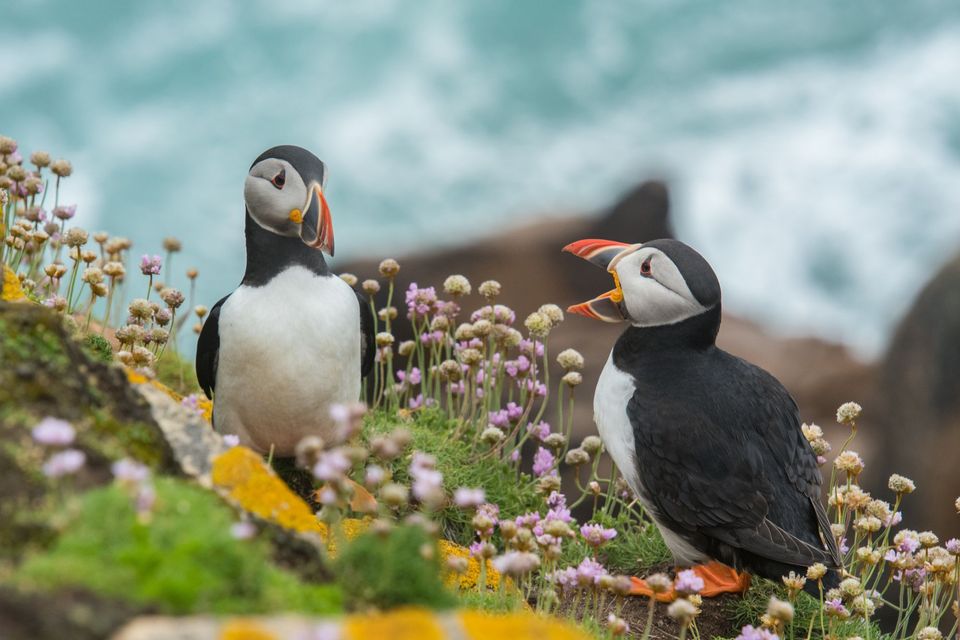
By Claire Nevin
In April 2022, the Irish Citizens’ Assembly on Biodiversity Loss (“The Assembly”) held its inaugural meeting in Dublin Castle. Since then, the Assembly, which is made up of 99 randomly-selected members of the public and an independent Chairperson, has been examining how the state can improve its response to biodiversity loss. On completion of its work later this year, the Assembly will make a number of recommendations to the Government in this regard.

In recent years, citizens’ assemblies have proved to be an effective and unifying way of enacting major constitutional and legislative change on some of the most topical and contentious issues of the day. For example, in Ireland, a 2012 Constitutional Convention on marriage equality and a 2017 Citizens’ Assembly on abortion led to the legalisation of gay marriage and the repeal of a constitutional ban on abortion by popular referenda. France has also experimented with this particular model of participative democracy by holding a Citizens’ Convention on Climate in 2020, a number of whose recommendations were included in the country’s new climate law.

From September 2022, after an initial phase of learning about biodiversity loss and proposed solutions through field trips and presentations, the Assembly will benefit from the perspectives of the general public, advocacy groups, experts and policy makers. Lawyers for Nature, in partnership with Queen’s University Belfast School of Law and the Environmental Justice Network Ireland, is honoured to be amongst those providing expert advice on the significant potential of the Rights of Nature movement in responding to biodiversity loss in Ireland.
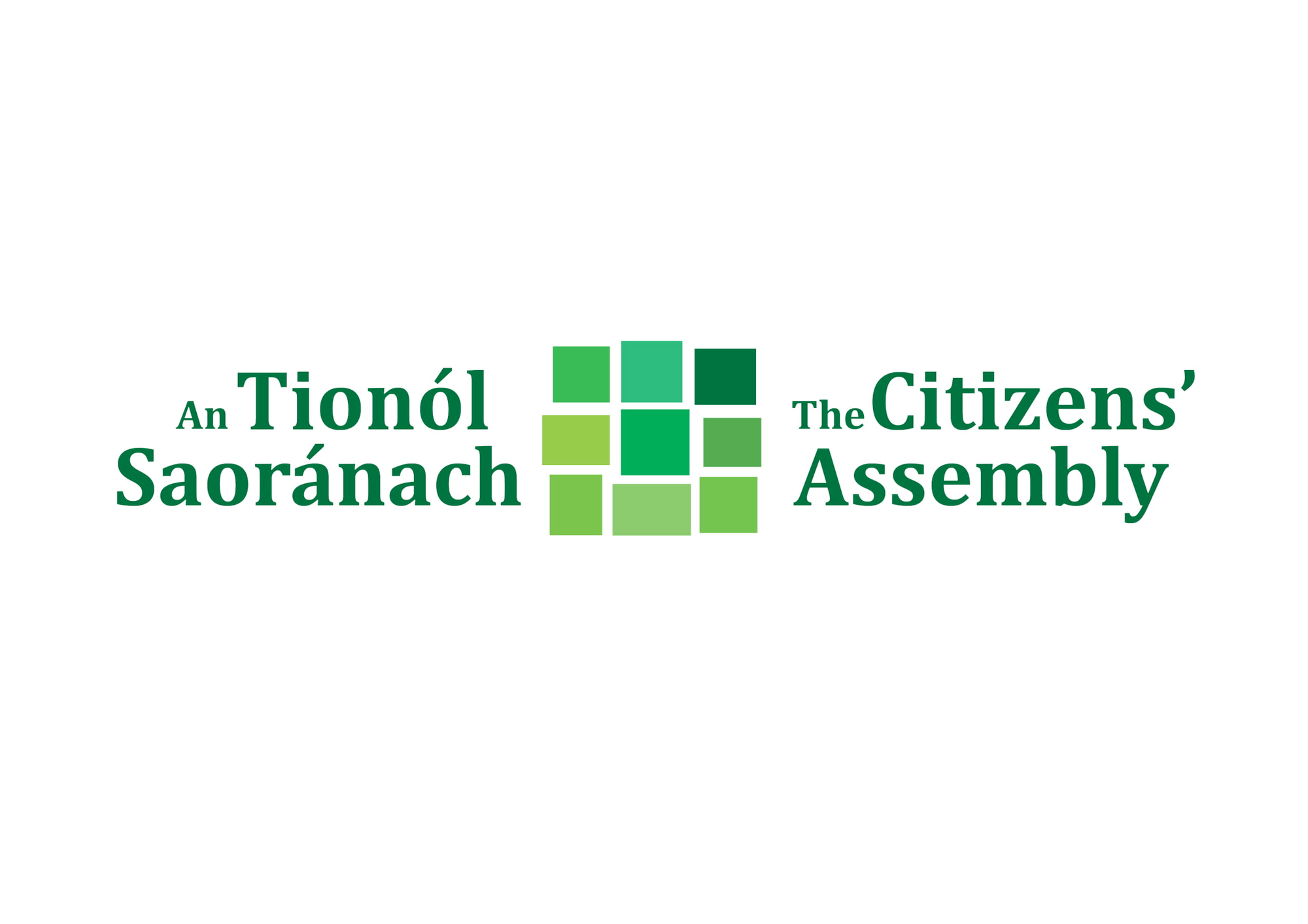
On the 1st of September, we submitted detailed written evidence and recommendations on the Rights of Nature and biodiversity loss for the Assembly’s consideration and it is our sincere hope that we will have the opportunity to make an in-person presentation later this year.
The key recommendations we submitted to the Citizens’ Assembly are as follows:
1.Call for a constitutional amendment giving explicit recognition to the Rights of Nature to exist, persist, evolve, and regenerate in Ireland alongside the reciprocal and indivisible human right to a safe, clean, healthy and sustainable environment, as recognised by the UN.
2.Support the unification, simplification and updating of environmental legislation to reflect the human right to a safe, clean, healthy and sustainable environment underpinned by the Rights of Nature.
3.We recommend that the Citizens’ Assembly encourage the Government to support the proposal of the Parliamentary Assembly of the Council of Europe (PACE) for a new Protocol to the European Convention on Human Rights (ECHR) recognising the right to a safe, clean, healthy and sustainable environment.
4.We recommend that the Citizens’ Assembly note and commend the pioneering work of Donegal County Council and commission research on the progress of the Rights of Nature campaign in the County and the local authority’s response with a view to publicising the outcome to raise public awareness of the concept and its implications for, inter alia, local government bodies.
5.We recommend that the Citizens’ Assembly commend and endorse the Motion introduced and supported by Donegal County Council on the Rights of Nature, with a recommendation that other Councils across the island consider similar initiatives, including well-resourced and fully participatory public consultation exercises as well as local direct democracy mechanisms.

6.In order to ensure that the recommendations of the Citizens’ Assembly are taken forward throughout the island of Ireland, the Citizens’ Assembly is invited to copy all outcomes to the Northern Ireland Executive and the North-South Ministerial Council, and to transmit these recommendations to any future Citizens’ Assembly on future constitutional arrangements for the island.
7.The Citizens’ Assembly is invited to transmit the recommendations and report of the Citizens’ Assembly to the UN Harmony with Nature programme at the United Nations Headquarters in New York.
8.Recommend that the Government invite the Law Reform Commission to draw up terms of reference for a review of customary law in Ireland, also making reference to the early drafters of the 1922 Constitution, with a view to making recommendations on the further decolonisation of Irish laws. This with a view to making recommendations on bringing Irish laws and the Constitution into line with international trends consistent with a decolonisation of domestic laws and realigning Irish laws with the Rights of Nature and placing ecology at the heart of a wellbeing economy.
9.Invite the Government to create a fund for the island’s leading language organisations (including, Gael Linn, Gaeloideachas, Cumann na bhFiann, Conradh na Gaeilge, Oireachtas na Gaeilge and Glór na nGael) and language scholars working at the intersection of socio-ecological transitions, language and power, to explore and deepen their contribution to our understanding of the climate and ecological crises. This contribution should focus on the important linkages between our relationships to Nature, language policy and the island’s colonial experience.
10.It is recommended that the Law Reform Commission engage in research that seeks to interrogate prevailing beliefs about property rights and the meaning of ‘ownership’, with a view to reconceptualising property as a dynamic institution, capable of recognising the rights of non-owners (including non-humans) relative to owners, particularly in agricultural and commercial contexts.

11.In July 2014, legislation was passed in New Zealand vesting fee simple ownership of Te Urewera National Park in the park itself, securing a range of protections and rights for the landscape and biodiversity contained within it. It is recommended that the Law Reform Commission engage in research to establish whether this type of approach might be replicated in Ireland, and to identify locations across the island where it might be implemented.
12.Legislation should be introduced that establishes a statutory ‘right to roam’ across uncultivated land, as well as a statutory scheme to improve the provision of public rights of way in the countryside. Opening up access to Nature will foster a stronger connection to, and a deeper respect for, biodiversity in all its forms and empower people to seek its protection.
13.It is recommended that Ireland introduce a new crime of ecocide into its own domestic law.
14.As a State Party to the International Criminal Court, the Citizens’ Assembly should recommend that Ireland show its support for the crime of ecocide’s introduction, and indeed even propose such an addition itself.
15.The Citizens’ Assembly should recommend that Ireland can use its voice in other regional and international fora to support the criminalisation of ecocide (e.g. within the EU).

Lawyers for Nature will continue to update on the Assembly’s progress and will provide additional context on Rights of Nature in Ireland and around the world as the movement gathers momentum.
Subscribe to Lawyers for Nature & Join our Community
If you are on the website, enjoyed this blog and are yet to subscribe to the Lawyers for Nature newsletter, you can click the button at the bottom right hand corner of this page, or simply click here. You can also use our Contact Page if you would like to reach out directly, or simply join our Community Discord Server.
We look forward to working with you.
